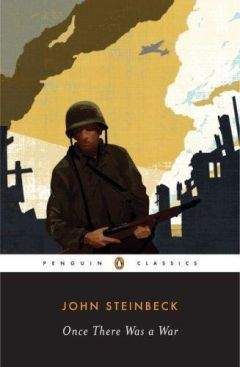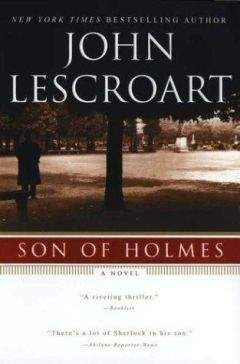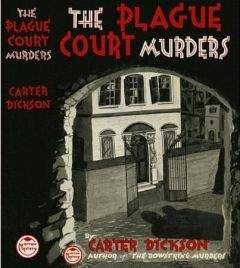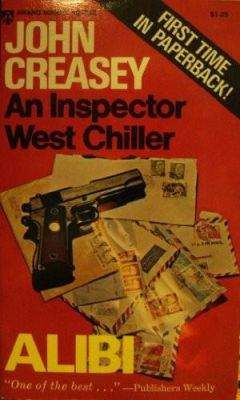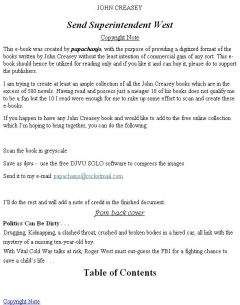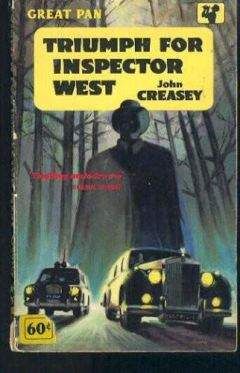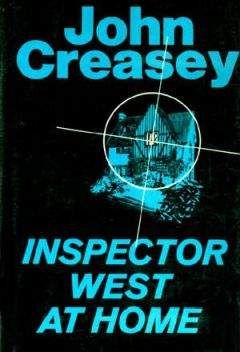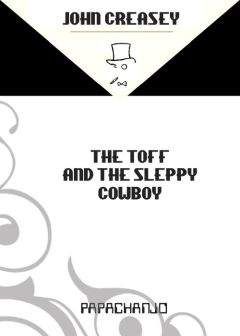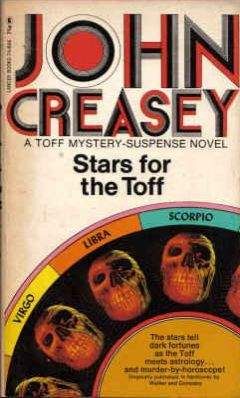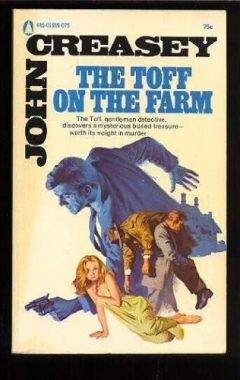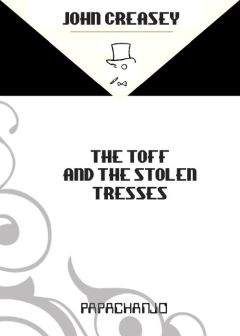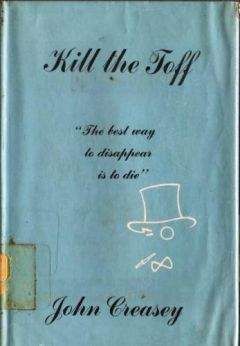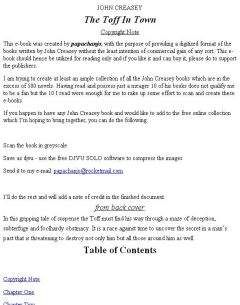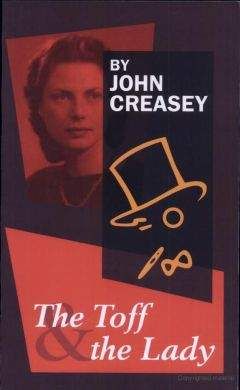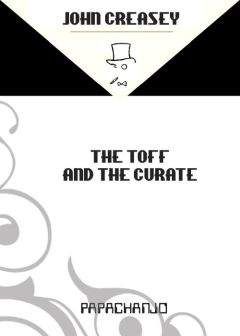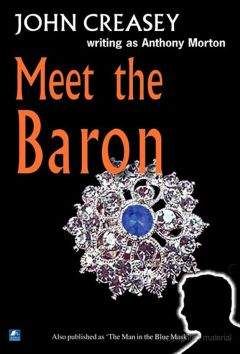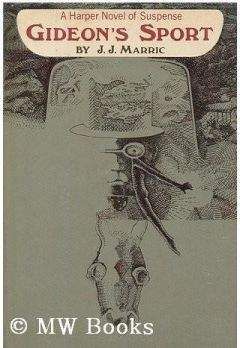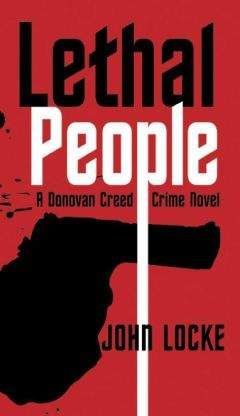John Creasey - Inspector West Alone
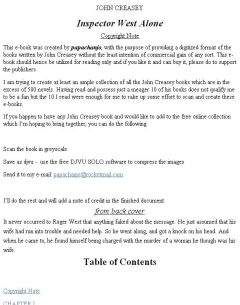
Скачивание начинается... Если скачивание не началось автоматически, пожалуйста нажмите на эту ссылку.
Жалоба
Напишите нам, и мы в срочном порядке примем меры.
Описание книги "Inspector West Alone"
Описание и краткое содержание "Inspector West Alone" читать бесплатно онлайн.
Her eyes were so tired, her hair, dark yet usually so full of light, had lost its lustre. Mark Lessing gave her a cigarette, and she began to smoke nervously, agitatedly.
Mark sat back, looking about him with less obvious tension than Janet, but eagerly, searchingly. He was good-looking—in his way, handsome. His expression was austere, and those who did not know him well took him for a snob. His skin was rather sallow, his dark hair was wavy, and worn too long; it looked affected.
No two people knew Roger so well.
“Please tell me,” Marion whispered.
“A friend—of mine.”
“Oh. Kennedy——”
“Sent us here. This is a test of my nerves and goodwill. I’d rather not talk.”
“It’s your wife isn’t it?” Marion said in a flat voice.
Roger nodded.
“She’s——”
“Don’t.”
“She’s very sweet.”
“Let’s get out of here!”
“No! Kennedy’s watching.” Marion feared Kennedy so much.
Kennedy was grinning, as if to himself.
“Come on,” said Roger.
He led the way, and Kennedy still grinned. Mark glanced at him; was there a puzzled gleam in his eyes? Roger paid at the cash desk, and when he looked round, neither of the others was looking at him. He was sticky hot. He went into the lobby and saw a man sitting in an easy-chair, from which he could see into the ballroom. It was all Roger could do to look away from the watcher who was Detective Inspector Sloan of New Scotland Yard —and no man at the Yard knew Roger more intimately.
Sloan stared at him blankly.
* * * *
The film didn’t matter; all he saw was Janet. It was dark when they left. The male nurse was outside with the car. The journey to the nursing-home took an hour. He wanted to get to his room and be on his own, but Kennedy called him into the lounge. Marion made to follow.
“Not you,” Kennedy said. “Close the door and leave us alone.”
Marion obeyed.
Kennedy grinned. “Good, isn’t it, West?”
“Is it?”
“I’d call it good. In future, you’re to be known as Rayner—Charles Rayner. I’ve a passport, registration card, business, home, past history, and everything else you might need. Don’t forget, Mr. Rayner.”
“You forget my bad memory.”
“Your memory is all right, so far, but it won’t hurt for long. Marion’s a nice girl, and she’s yours for the asking. Oh—Rayner.”
“Well?”
“You might have the bright notion of sending word to your wife. Don’t. I sent her a message, saying she might see you in Worcester to-day. So she hasn’t given up hope. I knew she was on the way, when you left. Know how I knew?”
Roger didn’t answer.
Kennedy laughed.
“Your wife has a new maid. She’s spent so much time away on wild-goose chases after you that she had to have a reliable nurse for the boys. She’s got one. That nurse will be loyal to her for exactly as long as you’re loyal to me. Not a day longer. You’re no fool, West. If your wife got a message which convinced her you’re alive, she’d tell the nurse—or at least, give it away. Remember all this. The nurse is a nice girl, and fond of children. But she’ll do what I tell her. I don’t want to have to hurt the kids.”
* * * *
Roger left the house again a week after he had seen Janet.
London!
Fresh under an April sun, but with her great buildings dark with smoke and grime. London, a seething, toiling mass of people, crowded streets, giant red buses, box-like taxis, shops, shops, shops—and factories, docks, the broad, smooth Thames. The London he knew and loved, revealed to him again as he was driven along the straight, wide tawdriness of Oxford Street, into Regent Street with its curving stateliness. Piccadilly bustle, Leicester Square a quiet, friendly grass patch with gargantuan cinemas around it, Trafalgar Square, Whitehall, massive Government buildings and—Scotland Yard. The driver turned towards Scotland Yard, but didn’t go past the gates. He stopped the car so that Roger could see the reddish brick of the old building, housing the civil police. Constables on duty looked at them disinterestedly, as at all sightseers. They drove past Cannon Row Police Station, dark, low-roofed, and dingy, with its barred windows. He knew every inch of it—and of the Yard. It had been his life.
The Embankment; the white new building, housing the C.I.D. Then they drove off the cluttered road near the pale-grey austerity of the new Waterloo Bridge, and into the Strand.
Roger, by the driver’s side, hadn’t said a word since they had reached London. Now :
“Where are we going?”
“You’ll see.”
They turned out of the Strand, near Covent Garden, empty and desolate and waiting for the next day’s business. They stopped in a narrow street. Here the buildings were old—a mixture of flats and offices.
“This is you,” said the driver. “Number 15.”
Roger got out. Number 15 was opposite—with an open door, a dark hallway, and narrow stairs. He went in, completely mystified. The driver sat in the car and grinned at his back. He glanced at the notice-board: there were six names, and one newly painted sign read:
Charles Rayner.
Commission Agent.
Wholesale—Retail.
4th Floor.
There was no lift. He walked upstairs slowly. He was Charles Rayner, and this was where he would work, do what “business” he would. It was dark on each landing; darkest on the fourth where a broken window was boarded up. He stood undecidedly outside a door marked with his new name; took the plunge and opened it.
A man leapt at him from the corner behind the door.
CHAPTER XI
GINGER
WILD eyes burned in a pale face. An iron rod clenched in a claw-like hand brushed Roger’s shoulders as he swung to one side. The rod hit the door with a metallic clang, and clattered on the floor. Roger ducked and dodged, then went into the attack, striking out savagely.
Right to the stomach; left to the chin. The first blow brought forth a soughing groan, the second, a screech. The man backed away helplessly, banged against a chair and sprawled into it.
Roger closed the door, and listened intently. He could hear a typewriter, going at speed; that was distant, the only audible sound. The man in the chair sat up, licked his lips and put out a hand as if afraid of further violence.
“Can you give me one reason why I shouldn’t break your neck?” Roger growled. His voice was hard and grating, the voice he’d trained himself to acquire.
The man cowered back; hardly a hero. He wasn’t difficult to read. He had screwed himself up to make that assault, and when it had failed, courage went out of him like air from a punctured balloon.
He was thin, his pallor sickly. He needed a shave, and his gingery hair wanted cutting. His clothes were poor; navy-blue suit frayed at the cuffs, and a choker-scarf, not a collar and tie.
This was a waiting-room; the high, cream-washed walls were bare, and there were two leather arm-chairs and four good uprights, reproduction Hepplewhite. On a plain walnut table, a dozen new magazines were neatly placed; alongside it was a similar arrangement of trade periodicals. There was a faint smell, dry and not unpleasant, of distemper. Two doors led from here. One was marked: Inquiries: Please Ring, with a sign beneath a bell-push; the other, Charles Rayner, Private. There were frosted-glass panels in each.
“Why did you attack me?” Roger demanded, roughly.
“I—thought——” The man hesitated, thrusting out his hands appealingly. “You’re not the man I expected.”
“It would still have been murder.”
“I came to kill him.”
You couldn’t mistake the touch of dignity which came unexpectedly with the words; the man was proud of what he had come to do.
Roger said: “Stay there.” He turned, pushed open the inquiries door and saw a large office, with six or seven desks, three typewriters, several telephones, cabinets—a well-equipped place, where everything was new. There was a large cupboard, with hooks for hats and coats. He went back, gripped the ginger-haired man and took him into the room and locked him in the cupboard.
Another door led from this room—to the “Private” one. Roger opened it; the office beyond was sumptuous; more study than office, with a thick carpet, panelled walls, a library of books, and several easy-chairs. No one was here. He studied the ceiling and the panelled walls; a policeman again, knowing exactly what he wanted and knowing pretty well where to find it. He saw a small panel, one of several in the wall behind the desk, and prised it open with his fingers.
He grinned broadly; that was his first natural smile since he had left Scotland Yard.
Inside a foot-deep cavity was a tiny dictaphone recording outfit. He switched it off, using a pencil, and closed the panel. Then he scanned the ceiling and panelling again until he was sure there was no peephole through which he could be watched or heard. He went to the outer room. The ginger-haired man stepped meekly out of the cupboard.
“In here,” Roger said.
He locked the outer door with the key on the inside; there was no way of getting in except by the windows. These overlooked a blank wall, and the drop to the area below was sheer. He stood first at one side, then the other, to make sure that the office could not be overlooked. Finally, with the ginger-haired man gaping and nervous, he stood on a corner of the desk and examined the ceiling; no, there was no break to mar the white paper; no peephole through which he could be watched.
“Who did you expect to find?”
“Not—not you.”
“I’ve believed you, so far. Who did you want to kill?”
“Rayner,” said the ginger-haired man.
So he had inherited an enemy as well as a name.
“Why?”
“He killed my wife.”
“Murderers get hanged.”
“It wasn’t known as murder,” the ginger-haired man said wearily. “It just wasn’t discovered, but I knew. I was inside when it happened. He always told me he’d kill her if she wouldn’t do what he wanted. She didn’t, and he killed her.”
Was this another of Kennedy’s little tricks?
“I’m—Kyle,” the man muttered.
“Why did they put you inside?” Kyle, Kyle? The name was familiar, and rang a bell in his memory.
“Forgery,” Kyle said simply. “I’m an engraver. I’m a good engraver.” That incongruous hint of dignity came again. “My products were practically undetectable.”
That was true: yes, Kyle. He’d been caught and tried in Manchester. It was one of those cases in which a provincial force had stolen a march on the Yard. Eddie Day, purveyor of faked messages, had gone to Manchester to hold a watching brief for the Yard, and had come back shaken by the cleverness of the forgeries.
“When did you come out?”
“A month ago.”
“What have you been doing since?”
“Looking for Rayner.”
“Are you still on your ticket?”
“Yes, I report twice a week. I go to Bow Street while I’m in London.”
“What does this man, who calls himself Rayner, look like?”
The watery pale-blue eyes, with their pink lids and thin fair lashes, looked puzzled.
“Don’t you know?”
“I am Rayner.”
“No, no! You can’t be! You——”
“The other man used my name. What’s he like? What’s his most noticeable feature?”
Kyle said softly and in a voice which seemed to be filled with hatred:
“You would never forget Rayner. His eyes—how I hated his eyes. Denise did, too, although they fascinated her, she—she was attracted to him, but he frightened her. He wanted her to go with him and leave me. My pals told me that Rayner told her he would kill her if she didn’t go to him. She didn’t go. She was killed in—in an accident. Accident!” Shrillness put an edge to his voice, and his eyes blazed. “She was run down by a car, all her beauty spoiled. All her beauty.” He took a photograph from his pocket, and his fingers trembled. He stared down at it, and tears glistened in his eyes. He whispered: “Look!”
She was gay and smiling, a queen to this man’s slave. It was easy to believe that Kyle had worshipped her.
Roger said: “I can understand why you don’t like Rayner. Let me have a look at your wallet.”
“I—no!”
“Come on.”
Kyle handed it over, reluctantly. Roger shook the contents of the wallet on to the brown-leather surface of the desk. He saw the expected oddments: a ticket of leave, prison-discharge form, registration card—an old, tattered, dog-eared letter dated eight years ago, a ten-shilling note, and another photograph. He turned the photograph over. He knew that Kyle was watching him, jealously intent, and kept his face set.
It wasn’t easy, for this was the girl from Paris—Lucille.
He stared down at it, then at the picture of Kyle’s dead wife.
These were alike, with unmistakable family likeness.
* * * *
“You pick good lookers,” Roger growled, after a long pause.
“Please!” Kyle’s dignity rose again. “That is my daughter.”
“Sure?”
“I am quite sure,” said Kyle. “That is Lucille.” He gave a gentle smile. “Years ago, I sent her to France, to my wife’s family. I met Denise during the first Great War. Lucille was so good and clever, and I did not want her smeared with my reputation. My wife and I agreed it was best. We had anxious days during the last war, my wife suffered most, because I wasn’t there to help her bear her loneliness, but all was well, Lucille was in a country-district, no harm befell her.” The pedantic phrases had a touch of dreaminess.
“Lucky Lucille,” Roger’s voice seemed to stick in his throat. “Where does she live now?”
“In Paris.”
“What’s her address?”
“That I shall not tell you.”
“Let me have that address. Kyle. You’ll regret it if you don’t. Afterwards, you can clear out of here. I’ll stake you for a few weeks.” Roger took out his wallet, and counted ten one-pound notes; Kennedy had given him fifty.
Eagerness but not avarice gleamed in Kyle’s eyes.
“I’ll stake you for ten a month,” Roger said. “I’ll send them to your address.”
“No! No, that wouldn’t be safe, I’m at Joe’s.” Joe’s was a verminous den, a doss-house that remained a blot on London, as it had been in the dark, squalid London back streets of Victorian days. “Send it to—but why are you going to stake me?”
“I don’t like men who use my name. You’ll keep quiet. If anyone asks, you came here to beg, and I kicked you out.”
“Yes, yes!”
“Where’s Lucille?” In a lonely pauper’s grave, somewhere in Surrey, a nameless corpse.
“She is at 23 Rue de Croix, Paris 8.” The information came out slowly and reluctantly; but it came. “You won’t harm her?”
“No. I’ll post ten bars a month to you in the name of John Pearson at the Strand Post Office—Trafalgar Square end. Now clear out. If anyone worries you, telephone me here.” Using block capitals, he wrote the number, taken from the telephone, on a strip of paper, printed the name of John Pearson, c/o the Strand G.P.O., as a reminder, and pushed it across the desk. “Don’t write, don’t come again unless I send for you. Is that understood?”
Подписывайтесь на наши страницы в социальных сетях.
Будьте в курсе последних книжных новинок, комментируйте, обсуждайте. Мы ждём Вас!
Похожие книги на "Inspector West Alone"
Книги похожие на "Inspector West Alone" читать онлайн или скачать бесплатно полные версии.
Мы рекомендуем Вам зарегистрироваться либо войти на сайт под своим именем.
Отзывы о "John Creasey - Inspector West Alone"
Отзывы читателей о книге "Inspector West Alone", комментарии и мнения людей о произведении.





